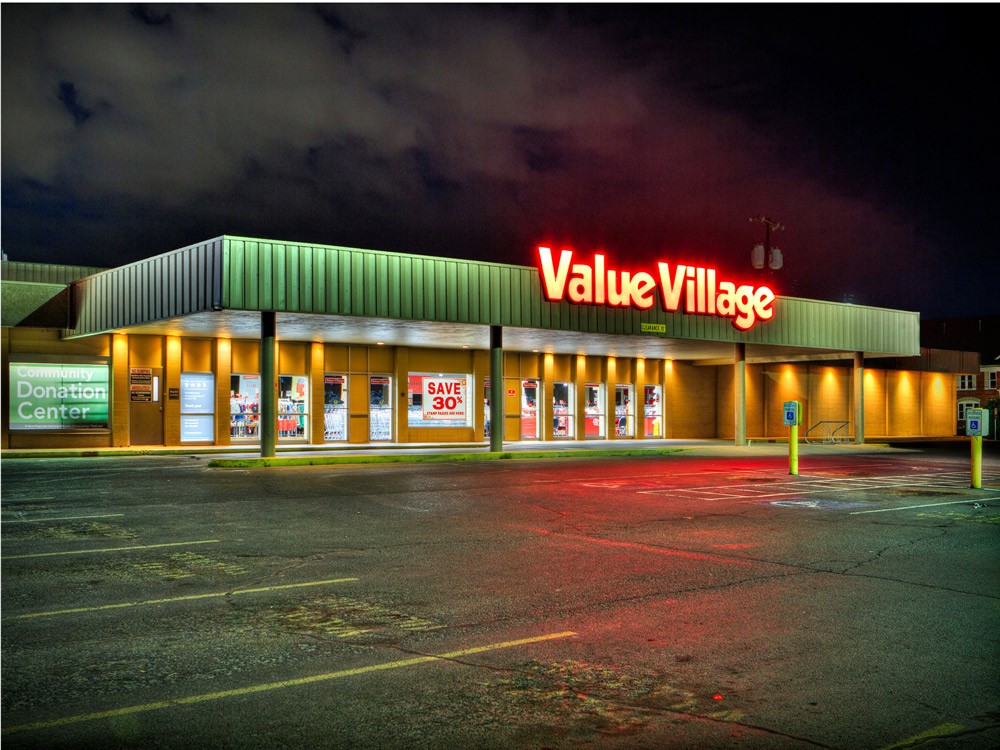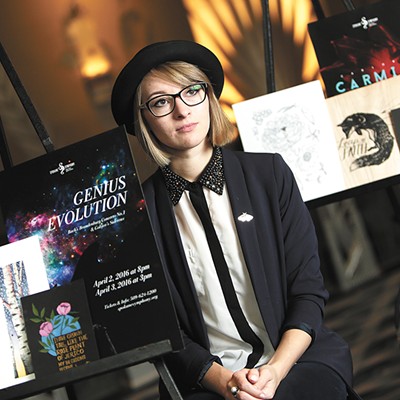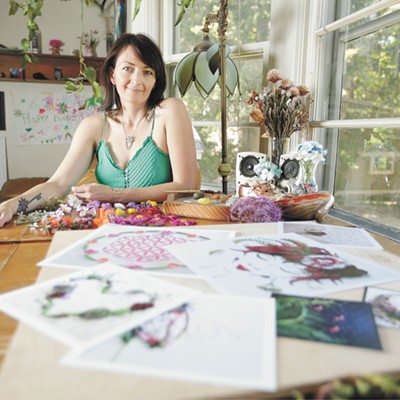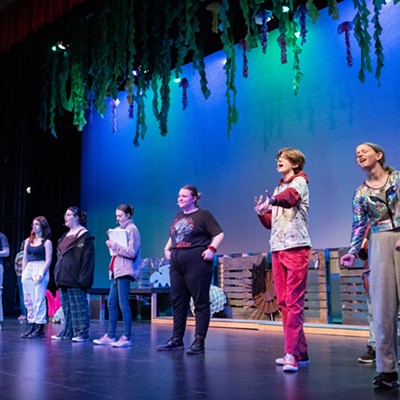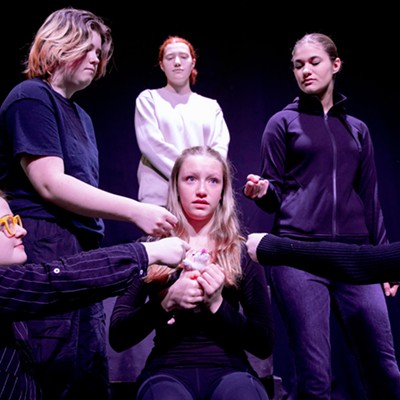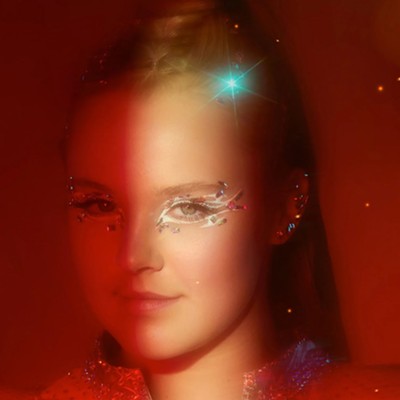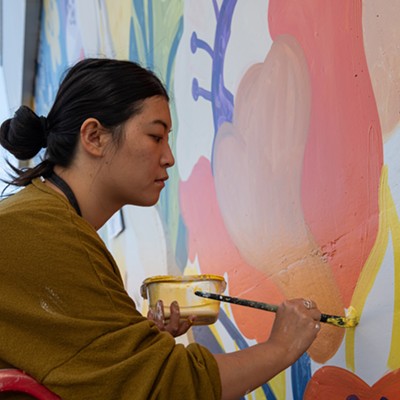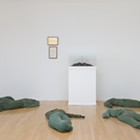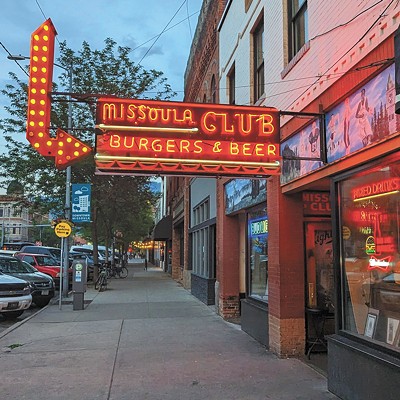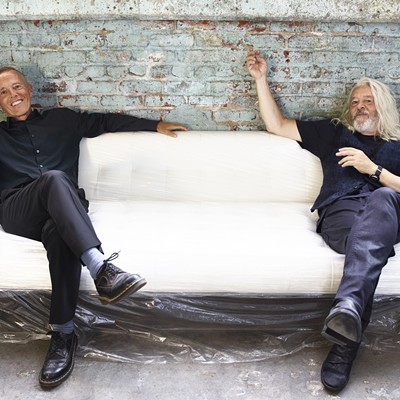Frank Knapp disembarks from his Starcraft van to stroll along the Spokane River not far from his Hillyard home. While Lycra-clad joggers trot by on this sunny spring afternoon, he sports a camouflage jacket and baseball cap to shield his eyes — better for seeing the changes in the river since his last visit.
On this day, Knapp spies a beaver swimming among some exposed tree roots toward a dam. There's colorful graffiti underneath the Mission Street Bridge, abandoned homeless camps, clothes hanging in tree branches, a semi-submerged bench seat from a car.
None of it inspires him to pull out his camera.
Then, doubling back, Knapp spots three rocks poking out of the water between some trees. The twilight is catching them just right, and a couple of days before, the river was too high to see them. Out comes his camera and tripod as Knapp says, quietly, "We're attracted to odd-numbered things."
Knapp does photo safaris along the river several times each week with his dog Banjo, the ever-changing river honing his ability to see a familiar scene differently every time. It's a skill he's used to create stunning photographs of Spokane's natural and urban environments — and where the two meet.
It's also an exercise he learned taking classes at Spokane Falls Community College. He calls it "the act of seeing, and seeing differently. Everyone just jogs through here without seeing."
Spying the world with a photographer's eye is relatively new for the 40-year-old, and did not come easily.
In 2008, Knapp was a happy newlywed, driving a delivery truck for a living. A year after getting married, he was at a friend's playing video games when he got the call. His wife was dead. "Her heart just stopped working," Knapp recalls.
Seven years later, he's flipping through photos in the house he shares with his girlfriend, her daughter and dog Banjo, and he believes the "midlife crisis" that followed his wife's death is what pushed him to photography, "to help sort that out."
"Without having any background in art, or writing — and you're not supposed to cry and all that — I think I really needed to find a way to express myself and look at the world in a different way," Knapp says. "And maybe hide behind the camera some, too."
Having lost everything that was important to him, Knapp quit his job and threw himself into school. He wasn't planning to get his degree, but was so inspired that he did anyway, in 2012.
He learned the basics, but his instructors pushed to "really show meaning and yourself in the work, and go beyond that and write about it." Growing up on a farm north of Spokane, he reveled in the country life riding snowmobiles and driving hay trucks, but didn't spend much time contemplating his emotional palette.
That changed, Knapp says, as "photography really connected with expressing myself, and seeing things differently."
Three years later, Knapp considers himself a bit of a geek, collecting all manner of cameras. He's worked primarily in digital photography so far, and his shots have been showcased at the Brick Wall Photographic Gallery, Liberty Ciderworks and Terrain. He has plans to create a darkroom in his basement so he can work more with film, but that will likely have to wait, as he's recently been accepted to both the Art on the Green in Coeur d'Alene and the MAC's ArtFest this summer.
People naturally will be drawn to his black-and-white nature photography or dramatic night shots of Spokane buildings. A few could be struck by what might be considered Knapp's specialty, showing man's effects on the natural world.
"There's got to be something more we can say about nature than 'It's been untouched,'" Knapp says. His photos sometimes focus on garbage on a trail, or a shopping cart half-covered by a rushing river. Knapp looks at that and sees beauty. Through his eyes and photographs, that beauty comes through.
"With most of my pictures, I try to capture the essence of what we're looking at," Knapp says. "I don't photograph people in most of my work, but I photograph enough stuff to get the sense of humanity in there." ♦


